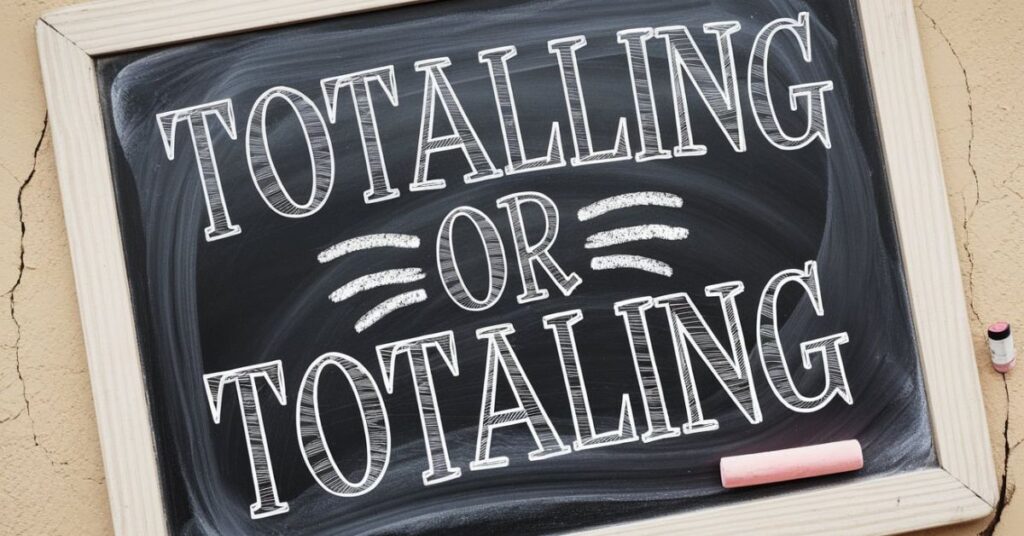In the ever-evolving landscape of the English language, even minor spelling variations can lead to confusion or debate. One such difference is the choice between totalling and totaling. While both are correct, their usage depends on regional conventions, audience preferences, and the context of the writing. In this detailed guide, we’ll explore totalling or totaling: which spelling to use, diving deep into their meanings, origins, and practical usage. By the end, you’ll know how to use these words effectively and confidently in any professional or casual setting.
Understanding Totalling vs Totaling
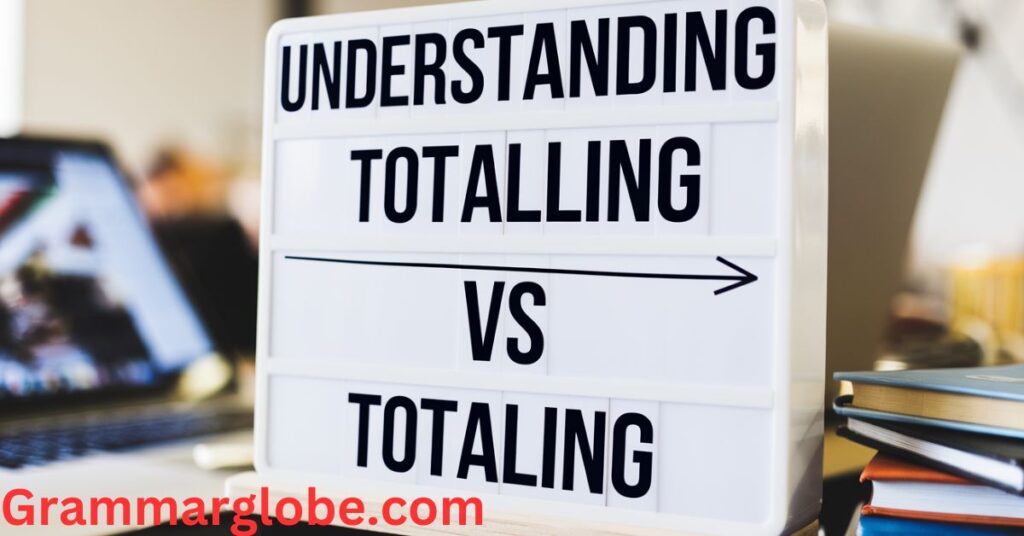
The distinction between totalling and totaling lies in their regional usage. They are alternate spellings of the same word, meaning “adding up” or “calculating the total of something.” However, the way these words are spelled depends largely on whether you follow British English or American English conventions.
- Totalling: The double “l” in this form follows traditional British English spelling rules. When adding the suffix “-ing” to a verb ending in a single vowel followed by a consonant (e.g., total), the consonant is doubled to maintain the short vowel sound.
- Totaling: The single “l” is the standard in American English spelling, where double consonants are often avoided unless necessary for pronunciation clarity.
Both forms are grammatically correct, but using the wrong spelling in a particular region or context can come across as careless or unprofessional.
See Also: 22 Other Ways to Say “Text It States”Why the Difference Matters
Spelling may seem like a minor detail, but it can significantly impact the way your writing is received. In professional and formal contexts, the right spelling enhances clarity and shows that you’ve tailored your communication to your audience. Here are some scenarios where the choice between totalling and totaling can make a difference:
- Emails and Reports: A British client might expect “totalling” in an accounting report, while an American client would anticipate “totaling.”
- Academic Writing: Universities in the UK and US often require adherence to their respective spelling conventions.
- International Business: Missteps in regional spelling can undermine credibility and professionalism.
The Correct Spelling of Totalling or Totaling
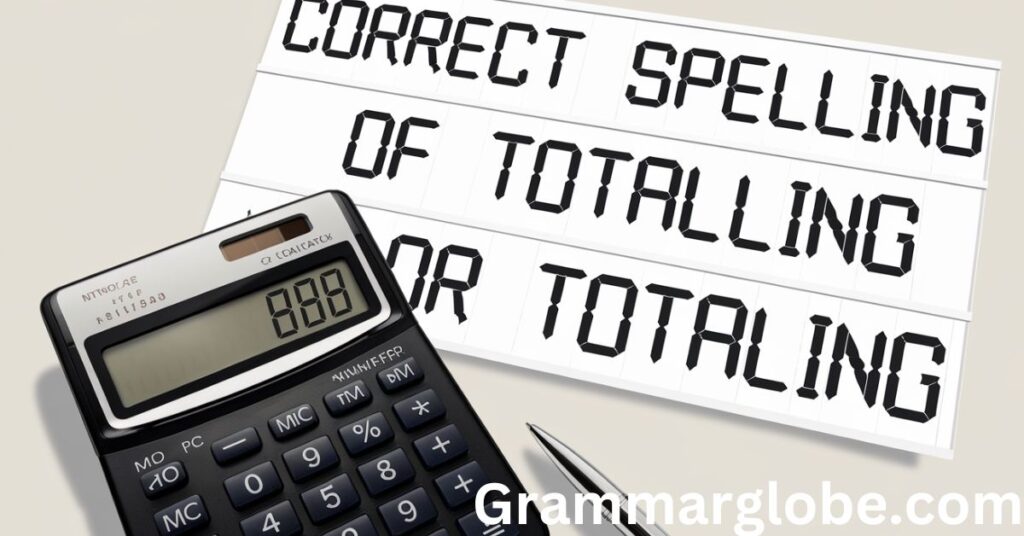
Determining the correct spelling involves understanding where your writing will be read. Here are some general rules:
- Use totalling if your audience follows British English conventions, such as in the UK, Australia, or Canada.
- Use totaling for readers who use American English, such as in the United States.
This choice is particularly important in professional writing, where adhering to regional norms demonstrates attention to detail and respect for your audience.
See Also: 22 Other Ways to Say “Mark Your Calendars”Example:
- British English: “The expenses are totalling £20,000.”
- American English: “The expenses are totaling $25,000.”
Example Scenario: Email to a British Client
When communicating with a British client, using “totalling” ensures your writing aligns with their expectations. Here’s an example:
I’ve attached the financial summary for this quarter. All amounts totalling £15,000 are outlined in Section 4. Please review and let me know if you need any changes.
Best regards,
Emily
In this scenario, the use of totalling reinforces professionalism by adhering to British English spelling conventions.
Example Scenario: Email to an American Client
For an American client, it’s important to use “totaling” to match their linguistic preferences. Here’s an example email:
Hi Mark,
Attached is the breakdown of this month’s expenses. The total costs, totaling $18,000, are detailed in the attached file. Let me know if you have any questions!
Thanks,
Amanda
This example illustrates how using American English spelling ensures clarity and cultural alignment with your audience.ty and demonstrates attention to detail.
See Also: Journeys or Journies? Mastering the Correct Plural FormThe Influence of Noah Webster
The difference between totalling and totaling stems from historical shifts in the English language. One of the most significant influences on American spelling was Noah Webster, the creator of Webster’s Dictionary.
Webster believed that English spelling should be simplified and more phonetic, making it easier to learn and distinctly American. His efforts led to several key changes:
- Dropping unnecessary letters (e.g., “colour” became “color”).
- Avoiding double consonants unless required for pronunciation (e.g., “totalling” became “totaling”).
This simplification of spelling has since become a defining characteristic of American English, differentiating it from the more traditional forms used in British English.
British vs American Spelling Rules
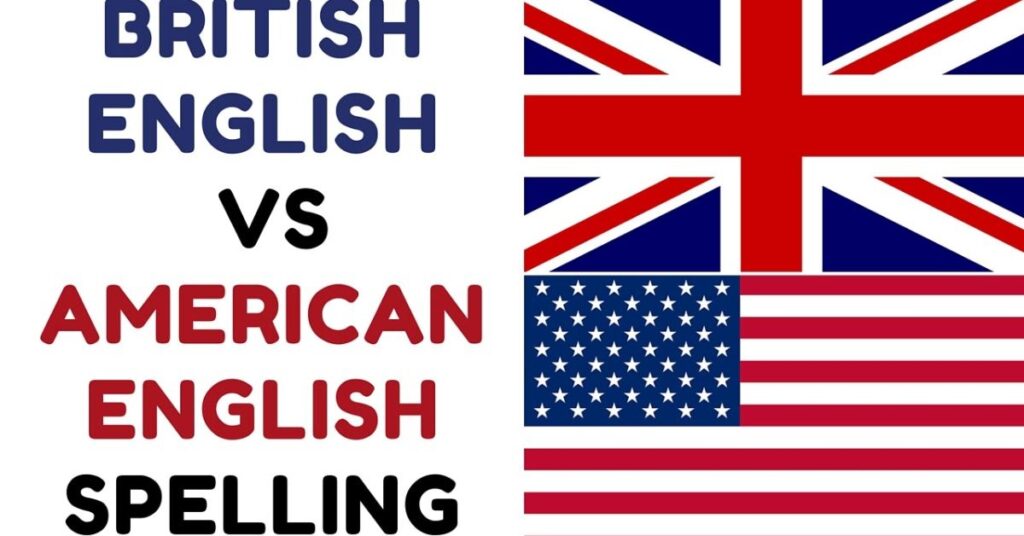
The divergence between British English and American English spelling reflects centuries of historical influences on English. These differences are not limited to “totalling” and “totaling” but extend to many other words.
British English
- Doubling the Final Consonant: When adding “-ing” or “-ed” to a verb ending in a single vowel followed by a consonant, the consonant is typically doubled (e.g., totalling, cancelling, travelling).
- Preservation of Traditional Forms: British English tends to retain historical spellings that reflect the language’s Latin, Greek, or French roots.
American English
- Avoiding Double Consonants: American English streamlines spelling by dropping unnecessary letters unless they impact pronunciation (e.g., totaling, canceling, traveling).
- Phonetic Simplification: Words are often spelled as they sound, prioritizing simplicity and consistency.\
These differences result from Noah Webster’s influence on American spelling in the 19th century. His reforms aimed to make spelling more logical and distinct from British conventions.
See Also: 12 Other Ways to Say “Unfortunately” in a Formal EmailBritish vs American Spelling Differences
To better understand the differences, here’s a table of common spelling variations:
| Word | British English | American English |
|---|---|---|
| Totalling/Totaling | Totalling | Totaling |
| Colour/Color | Colour | Color |
| Centre/Center | Centre | Center |
| Organise/Organize | Organise | Organize |
| Travelling/Traveling | Travelling | Traveling |
Understanding these patterns helps ensure your writing aligns with the expectations of your audience.
Synonyms for Totalling/Totaling
Using synonyms can be a great way to vary your vocabulary while maintaining clarity. Here are some alternatives to “totalling” or “totaling”:
- Adding up
- Calculating sums
- Summing up
- Aggregating
- Computing totals
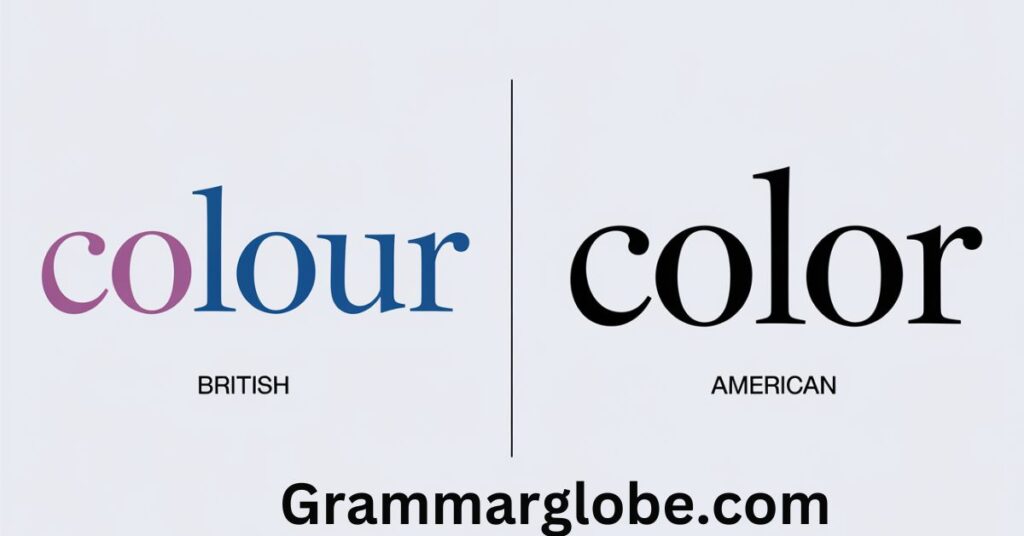
Example in Practice
Instead of writing, “The report includes expenses totalling $10,000,” you could say:
- “The report includes expenses adding up to $10,000.”
- “The report details expenses calculated at $10,000.”
These synonyms are especially useful in repetitive contexts, such as accounting or financial reporting.
See Also: Understanding “Friday’s,” “Fridays’,” and “Fridays”: A Simple GuideUsage in British vs American English
British Usage: Totalling in Accounting and Finance
In British English, “totalling” is commonly used in formal writing contexts such as accounting reports, business documents, and academic papers. Examples include:
- “The invoices totalling £12,000 are pending approval.”
- “Expenses totalling £18,500 are outlined in the attached summary.”
American Usage: Totaling in Everyday Speech
In American English, “totaling” is more commonly seen in casual or everyday contexts, as well as in formal documents. Examples include:
- “The expenses, totaling $15,000, have been approved.”
- “Revenue totaling $500,000 was reported for Q3.”
Accounting and Calculating Totals

In accounting and finance, the choice between totalling and totaling is significant. Both spellings are used to describe the process of calculating sums or aggregating data, but the spelling should match the region where the report will be read.
Practical Tip:
Always verify the spelling conventions in the style guide or language preferences of your organization.
Accountant’s Report for British Audiences
The year-end summary indicates total expenses totalling £250,000, including all operational costs and VAT.
Accountant’s Report for American Audiences
The year-end summary indicates total expenses totaling $320,000, including all operational costs and applicable taxes.
These examples highlight how adhering to regional preferences in spelling can enhance your credibility in professional writing.
Spelling Conventions in English
English spelling conventions are influenced by historical, cultural, and practical factors. Understanding these conventions helps ensure your writing is polished and professional.
Language reflects culture, and the choice between totalling and totaling is no exception. In British English, traditional spellings are seen as part of the language’s heritage, while in American English, simplified forms are valued for their practicality. These cultural preferences in spelling highlight the dynamic and evolving nature of the English language.
See Also: Tweek vs Tweak: Clarifying the Difference and UsageKey Differences:
- British English emphasizes tradition and often doubles consonants before suffixes.
- American English prioritizes simplicity and avoids unnecessary double letters.
Adapting to these conventions is crucial for effective communication.
Practical Tips for Consistency
- Understand Your Audience: Always consider whether your readers use British English or American English.
- Use Writing Tools: Software like Grammarly or Microsoft Word can help identify and adjust spelling based on regional preferences.
- Follow Style Guides: Industry-specific style guides (e.g., APA, MLA, or Chicago Manual of Style) often dictate which spelling conventions to use.
- Be Consistent: If you choose one spelling, stick with it throughout your document to avoid confusion.
See Also: 10 Apostrophe Examples in LiteratureConclusion: Totalling or Totaling?
So, which is correct: totalling or totaling? The answer depends on your audience and context.
- Use totalling for British English spelling contexts, such as UK-based businesses or academic writing.
- Use totaling for American English spelling contexts, including US-based communications and publications.
In both cases, the key is consistency. Whether you’re writing a formal report, an email, or a casual note, aligning your spelling with the expectations of your audience ensures clarity, professionalism, and effective communication.
Now that you know the difference, you’re ready to confidently decide when and how to use totalling or totaling in your writing. By tailoring your language to your audience, you’ll enhance the impact and credibility of your message.
FAQs
What is the difference between “totalling” and “totaling”?
“Totalling” is the British English spelling, while “totaling” is the American English version. Both mean the same.
When should I use “totalling”?
Use “totalling” when writing in British English or for audiences accustomed to UK conventions.
Why does the spelling differ?
The difference stems from regional spelling conventions, with American English simplifying double consonants in some cases.
Is one spelling more correct than the other?
No, both are correct depending on your audience and the variant of English you’re using.
Can I use either spelling in professional writing?
Yes, but ensure consistency. Match your spelling to the style guide or regional preference of your audience.

Jenni Maic is a creative wordsmith at Grammar Globe, where she brings humor and wit to the world of puns and English grammar. With a passion for playful language and a knack for simplifying grammar, Jenni’s articles make learning engaging and entertaining. Discover her work at https://grammarglobe.com/.

